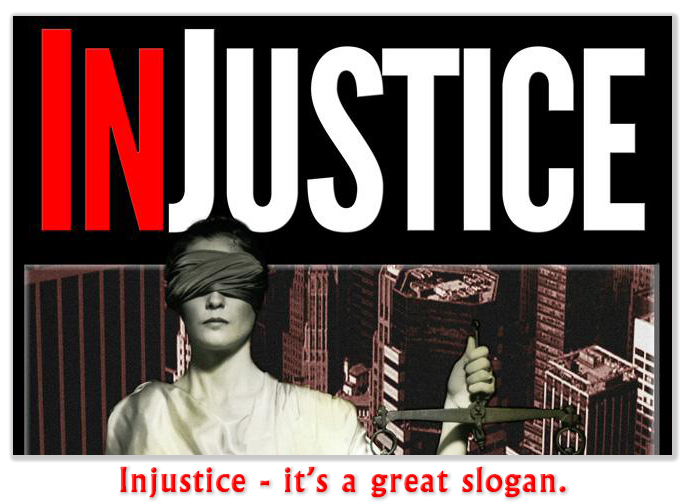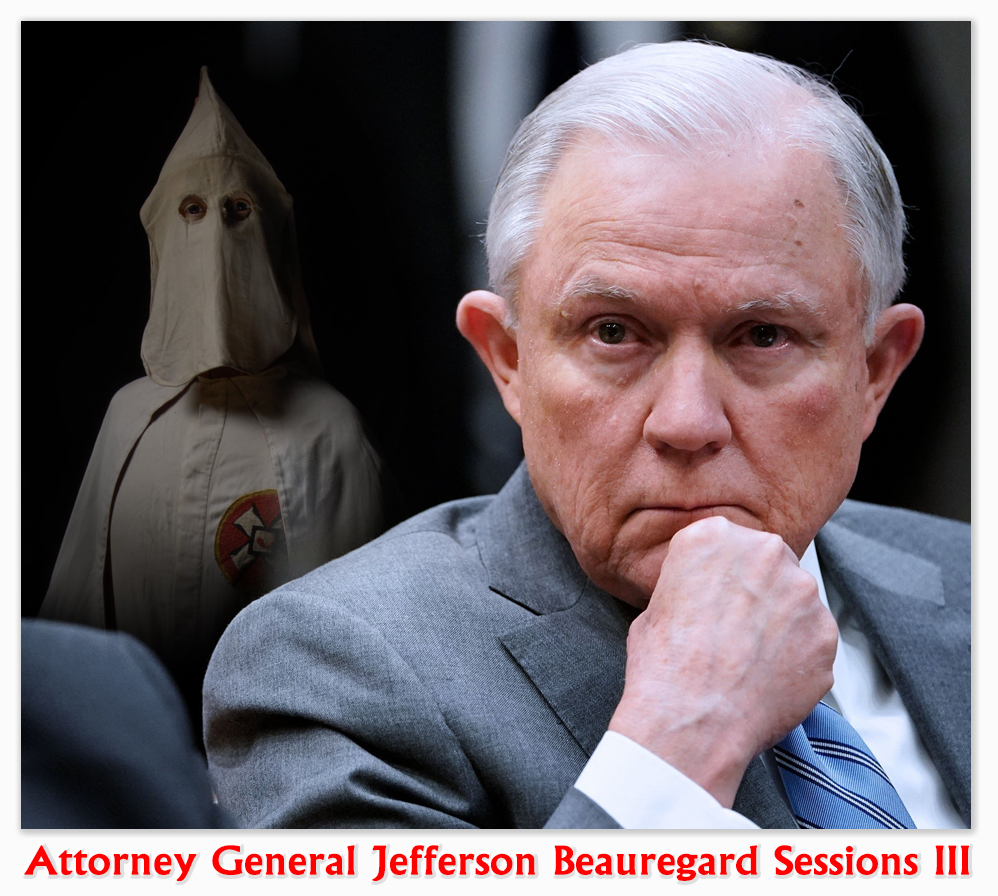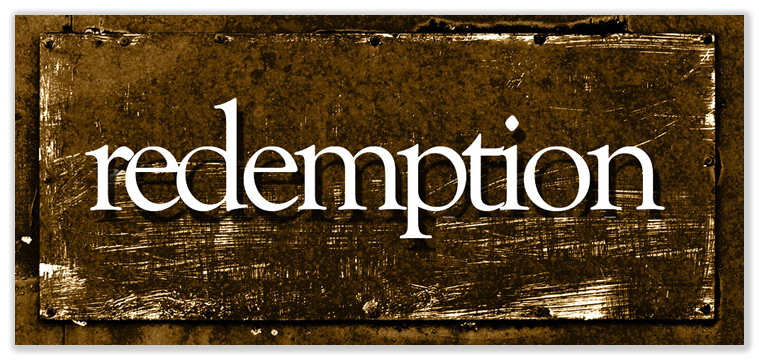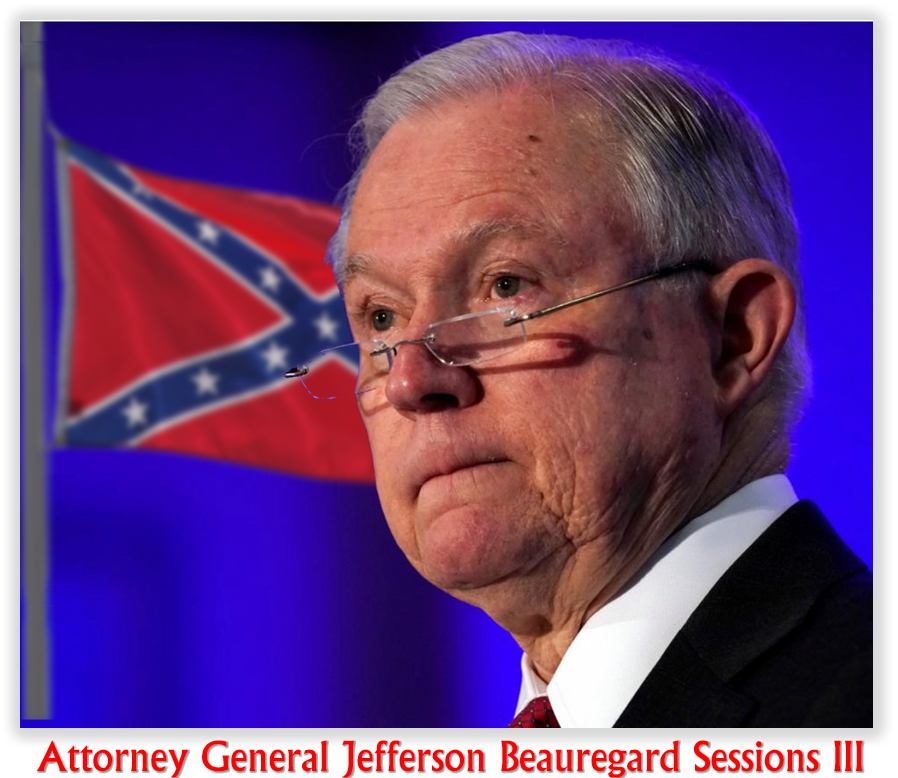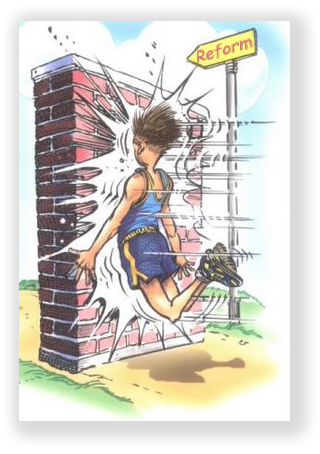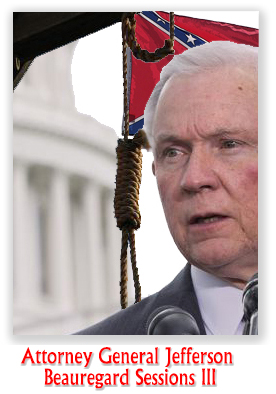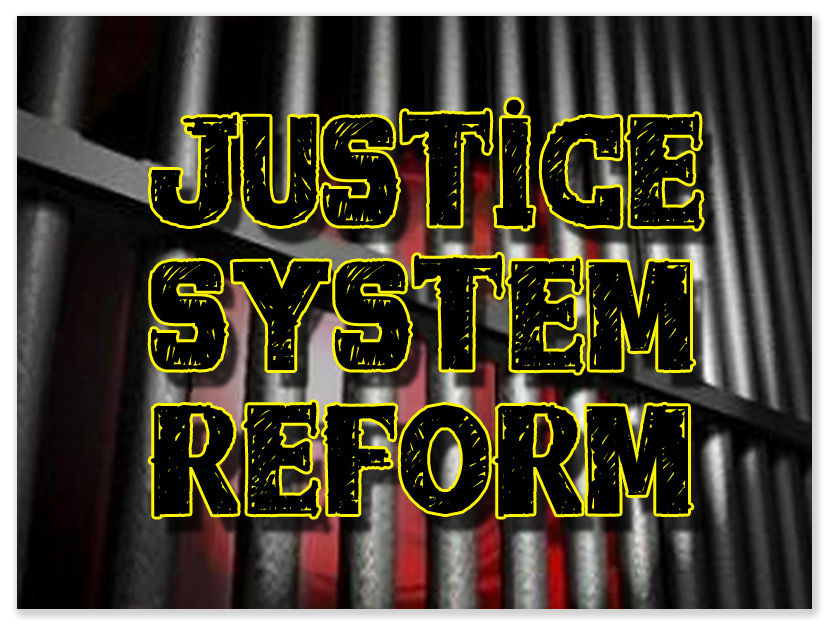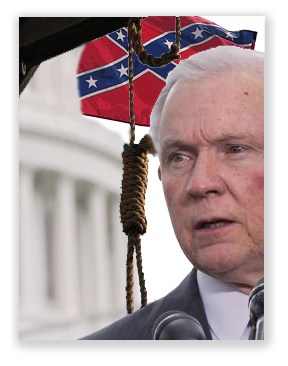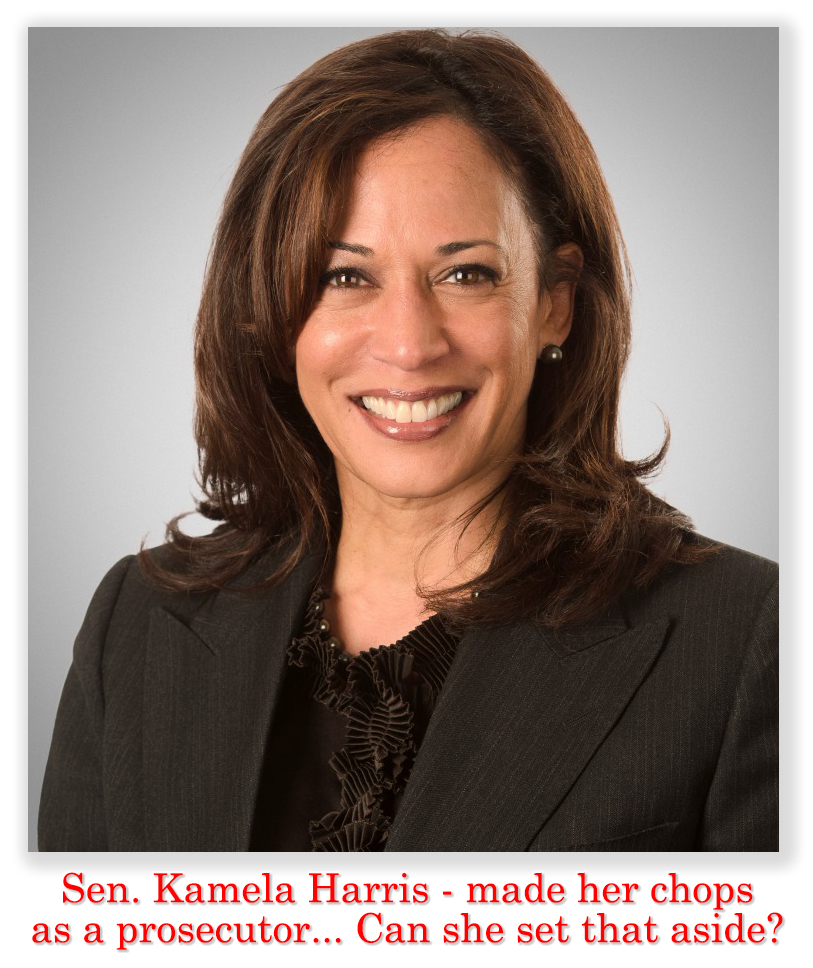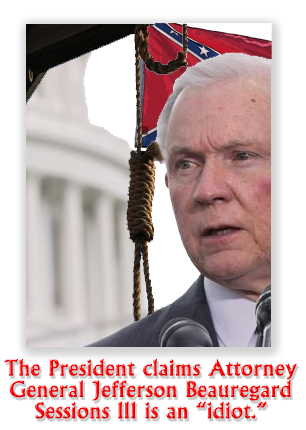We post news and comment on federal criminal justice issues, focused primarily on trial and post-conviction matters, legislative initiatives, and sentencing issues.

SENATORS SEEK TO RECRUIT TRUMP TO BACK SENTENCE REFORM
The Senatorial Odd Couple – conservative Sen. Charles Grassley (R-Iowa) and liberal Richard Durbin (D-Illinois) – held a joint press conference last Tuesday to try to recruit President Trump as an ally to help move the Sentencing Reform and Corrections Act of 2017 through the Senate.
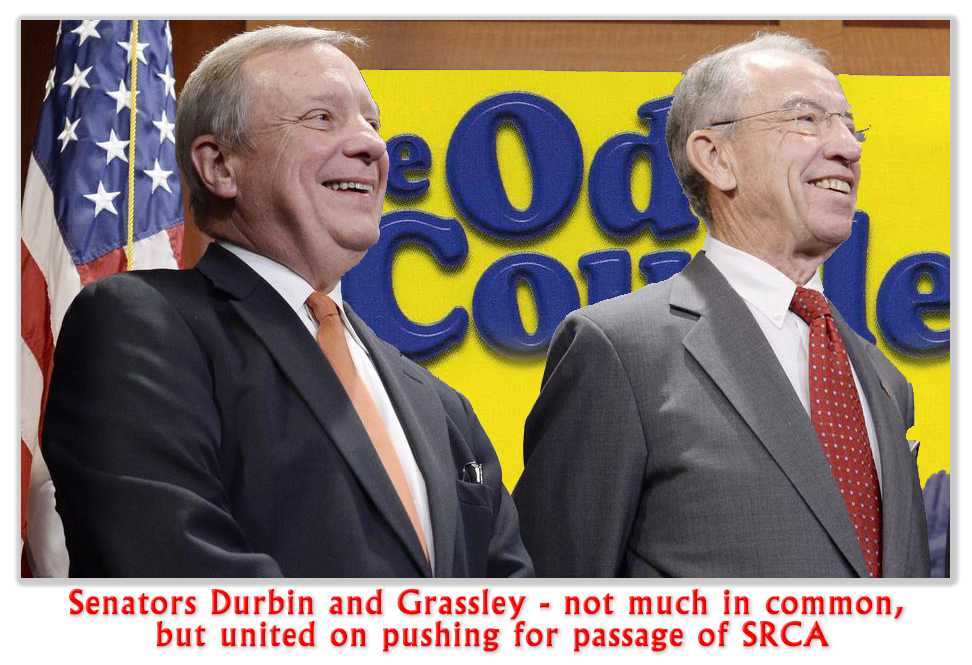 Grassley and Durbin – No. 1 and 2 on the Senate Judiciary Committee – urged the president to get involved in the reform process — “in a positive way,” Durbin pointedly suggested. “We need for the president, the president of the United States, to say this is a priority for us as well. Let’s do this criminal justice reform, to include prison reform… What a breakthrough that would be.”
Grassley and Durbin – No. 1 and 2 on the Senate Judiciary Committee – urged the president to get involved in the reform process — “in a positive way,” Durbin pointedly suggested. “We need for the president, the president of the United States, to say this is a priority for us as well. Let’s do this criminal justice reform, to include prison reform… What a breakthrough that would be.”
Grassley noted that Trump frequently tweets about Senate Democrats needing “to do something.” He said criminal justice reform is tailor-made for Trump’s action agenda. “It kind of is a good combination between what’s good politics and what’s good policy… This is an opportunity for the president to have a win. It’s an opportunity for our justice system to have a win. … It would help a lot if the president would engage on this very important issue,” Grassley said.
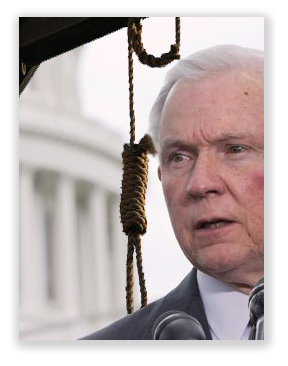
Grassley has engaged Attorney General Jefferson Beauregard Sessions III and White House adviser and Trump advisor and son-in-law Jared Kushner on the issue, which has probably left the Senator 1-1: Kushner is a supporter, while Sessions would likely support expanding the death penalty to cover misdemeanors.
Grassley said Sessions told him that SRCA would not undercut the administration’s “tough on crime” stance. “I thought that I determined an opening. Well that opening hasn’t materialized and obviously I didn’t make an impact,” Grassley said.
That may change very soon. Grassley has suddenly become very important to Donald Trump, because it is the Judiciary Committee that will conduct hearings on Trump’s Supreme Court nominee, who will be announced next Monday. The Republicans badly want to confirm the new justice, who will replace the retiring Anthony Kennedy, and Grassley, as chairman of Judiciary, holds a few of the keys to the kingdom.
That’s good news, because criminal justice reform has largely stalled on Capitol Hill. The House passed the FIRST STEP Act, which only addresses prison reform, and Senators John Cornyn (R-Texas) and Sheldon Whitehouse (D-Rhode Island) have introduced a similar bill in the Senate. But Grassley and Durbin are pushing broader criminal justice reform legislation that include both the sentencing reform changes in SRCA and the prison reform changes of FIRST STEP.
 Last Tuesday, Kushner met with Cornyn and Whitehouse, as well as FIRST STEP sponsors Reps. Doug Collins (R-Georgia) and Hakeem Jeffries (D-New York) from the House of Representatives, to strategize on how to move FIRST STEP forward following House passage last month, according to a report on the Axios news website.
Last Tuesday, Kushner met with Cornyn and Whitehouse, as well as FIRST STEP sponsors Reps. Doug Collins (R-Georgia) and Hakeem Jeffries (D-New York) from the House of Representatives, to strategize on how to move FIRST STEP forward following House passage last month, according to a report on the Axios news website.
SRCA has the backing of more than a fourth of the Senate, and Grassley and Durbin reiterated last Tuesday that they believe they have the 60 votes needed to pass the legislation in the Senate if they are able to get the bill to the floor. Bringing the bill up for a vote requires the approval of Senate Majority Leader Mitch McConnell (R-Kentucky). McConnell will do what Trump wants him to do. Trump needs Grassley’s cooperation, and Grassley needs Trump’s backing on comprehensive criminal justice reform. Trump does not much need Sessions, whom has been in Trump’s doghouse for well over a year.
 Trump’s recent pardons and commutations suggests that maybe the Russia probe has sensitized him to what it feels like to have the Dept. of Justice and FBI gunning for you. Amy Povich of the CAN-DO Foundation said of Trump, “I am encouraged that for the first time we are seeing somebody who possibly understands the complexities of the Office of the Pardon Attorney being controlled by the Department of Justice. There are a lot of dirty cases and they don’t want those to see the light of day, so they let their prosecutors have the largest voice as to which cases go over there. Trump now apparently understands this and that is why he’s asking for a list. We are honored to have been asked to provide a list, so fingers crossed.”
Trump’s recent pardons and commutations suggests that maybe the Russia probe has sensitized him to what it feels like to have the Dept. of Justice and FBI gunning for you. Amy Povich of the CAN-DO Foundation said of Trump, “I am encouraged that for the first time we are seeing somebody who possibly understands the complexities of the Office of the Pardon Attorney being controlled by the Department of Justice. There are a lot of dirty cases and they don’t want those to see the light of day, so they let their prosecutors have the largest voice as to which cases go over there. Trump now apparently understands this and that is why he’s asking for a list. We are honored to have been asked to provide a list, so fingers crossed.”
Risk-assessment company Skopos Labs sets the odds of FIRST STEP becoming law at 82% as of today, and rates SRCA’s chances at 63%.
The Hill, Bipartisan senator duo urges Trump to back criminal justice bill (June 26, 2018)
Axios, Jared Kushner huddles with Congress on prison reform (June 26, 2018)
Salon, Is there real hope for prison reform? Nonviolent offenders and the “Kim Kardashian moment” (June 29, 2018)
– Thomas L. Root







